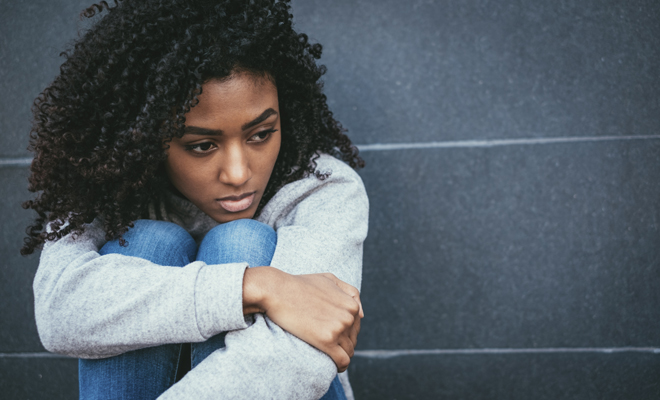It is frequently repeated in hospitals: people who arrive feeling and presenting symptoms of some disease. When performing the relevant tests to determine the diagnosis, it turns out that these tests are not conclusive of any disease, but even so, it is visible, both for the patient and for the relatives, that the person is presenting symptoms, and then the medical team and psychological seek an answer to this situation.

But it all starts with the fears derived from the interpretation of people, a misinterpretation of non-pathological physical symptoms or normal bodily functions, for example: people can present bodily aches and pains, abdominal gas, diarrhea, menstrual cramps, sweating, etc.
If you are a person who is continually concerned with the idea of contracting a disease and repeatedly look at your throat, your body, check and/or check your vital signs several times a day, this article will interest you. Next I am going to talk to you about Illness Anxiety Disorder. Are you excessively concerned about your health? Pay attention!
What is Illness Anxiety Disorder?
According to the article by Mª José Fernandez Guerrero (The hypochondria of everyday life) for the XIX International Virtual Congress of Psychiatry, “Anxiety Disorder due to Illness or Health Anxiety has two essential components: fear of illness and conviction (suspicion) of disease. In the development of Health Anxiety, four cognitions have been detected that seem to determine it: perception that there is a possibility of contracting or having contracted a disease, perception that having a disease It’s something horrible, a perception of inability to cope with an illness and/or a perception that medical resources are ineffective in treating your illness.”
Therefore, people with this disorder perceive uncomfortable or unusual physical sensations as an indication of a serious illness, causing fear and worry to invade them.
How do I know if I have Illness Anxiety Disorder?
Signs and symptoms may include:
- Worry about having or getting a serious disease or disorder. (“I’m sure I already got it”)
- Concern with minor symptoms or bodily sensations, believing that they are signs of a serious illness. (“How many degrees is the normal temperature of a person? I’m sure I’ll get a fever right now”)
- Constant concern for the state of health. (“Am I really healthy?”)
- Experiencing a very slight or no sense of calm after going to the doctor’s office or after obtaining negative test results.
- Excessive concern about a specific disease or the risk of suffering from a disease that runs in your family. (“I hope no one gets Covid, what I am going to do if someone has it!”)
- Anguish and fear for possible unknown diseases in which it is difficult to function.
- Frequently examine your body for possible signs of disease. (“Is this mole normal or cancerous?”)
- Going to medical consultations regularly to reassure you or, on the contrary, avoiding medical attention for fear of being diagnosed with a serious illness. (“I always get my annual checkup because I never want to get sick”)
- Avoidance of people, places or activities for fear of the risks that it may entail for health. (“I’m scared to go to the hospital; I’m scared of the nurses”)
- Talk at all hours about your health and about possible illnesses. (“Notice that the doctor told me…”)
- Being subscribed to electronic and constantly searching the Internet for the causes and symptoms of possible diseases.
Treatment for Health Anxiety
As you can see, the symptoms are related to health problems; therefore it is essential that you be evaluated by a certified doctor. If it indicates that it is not a health problem, it is important that you seek help with a psychologist. Effective treatment of Illness Anxiety Disorder requires early detection, psych education, treatment, and pharmacotherapy.
In addition, I suggest the following tips to prevent this disorder:
- Make an agenda and schedule your daily activities, including food, leisure time and exercise.
- Acknowledge your emotions and accepts they are.
- Practice relaxation techniques or yoga.
- Take time for yourself and your family.
- Allow you to be afraid, angry and cry.






